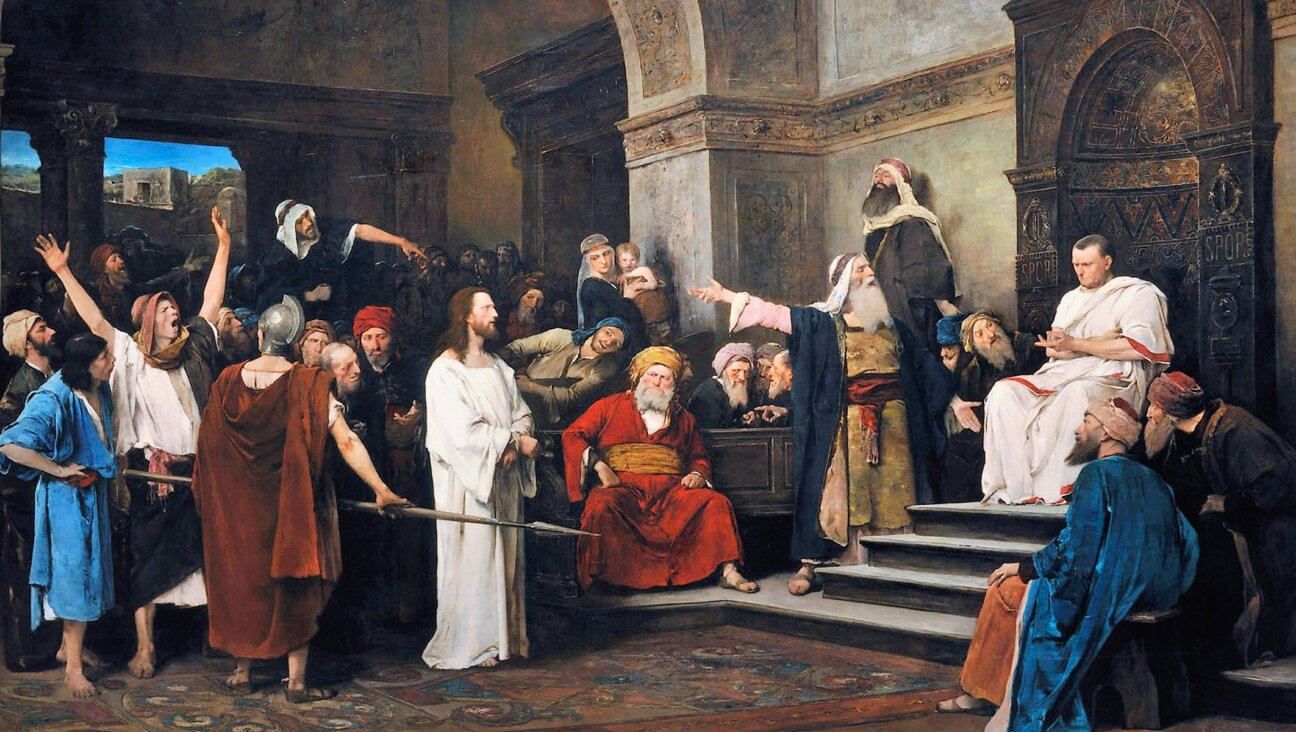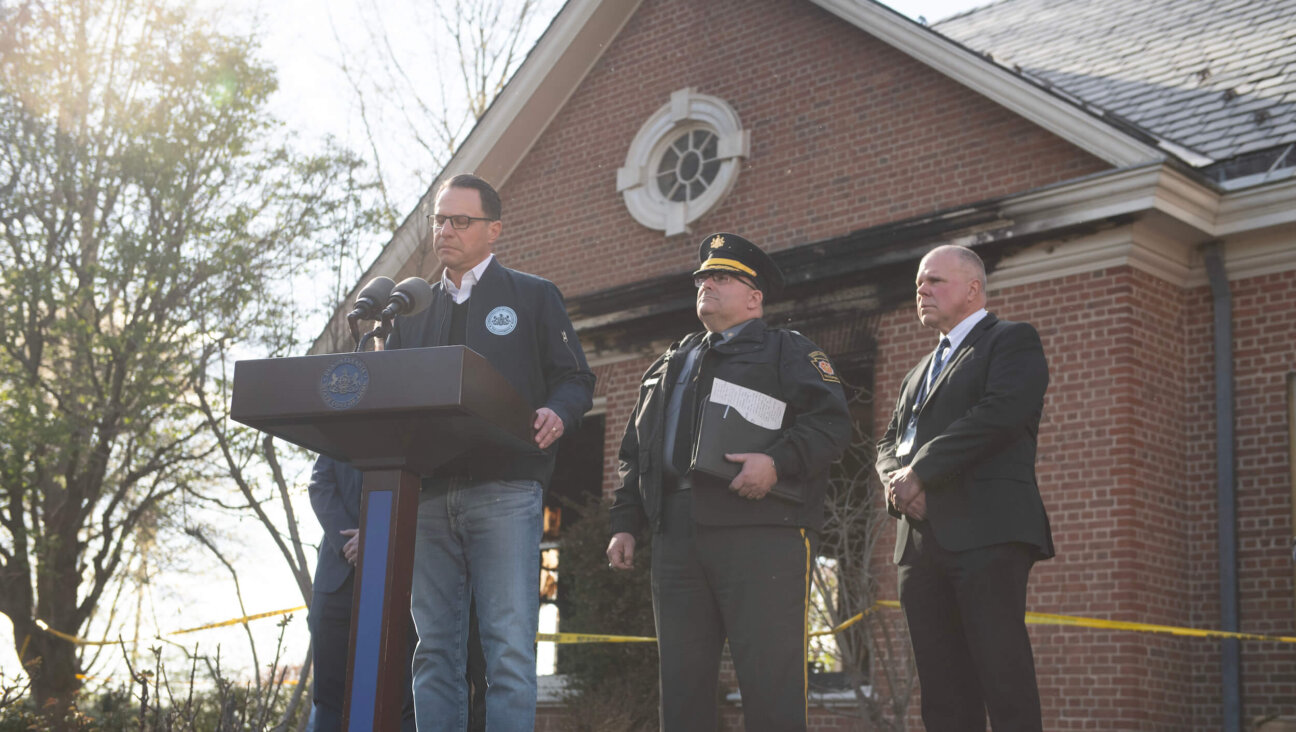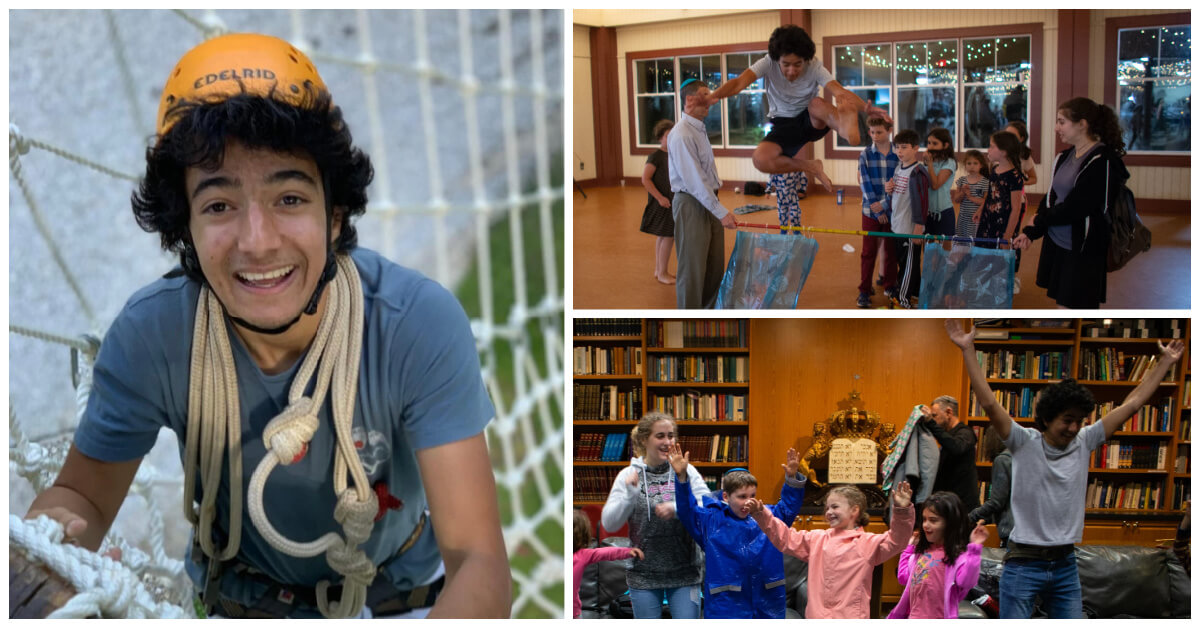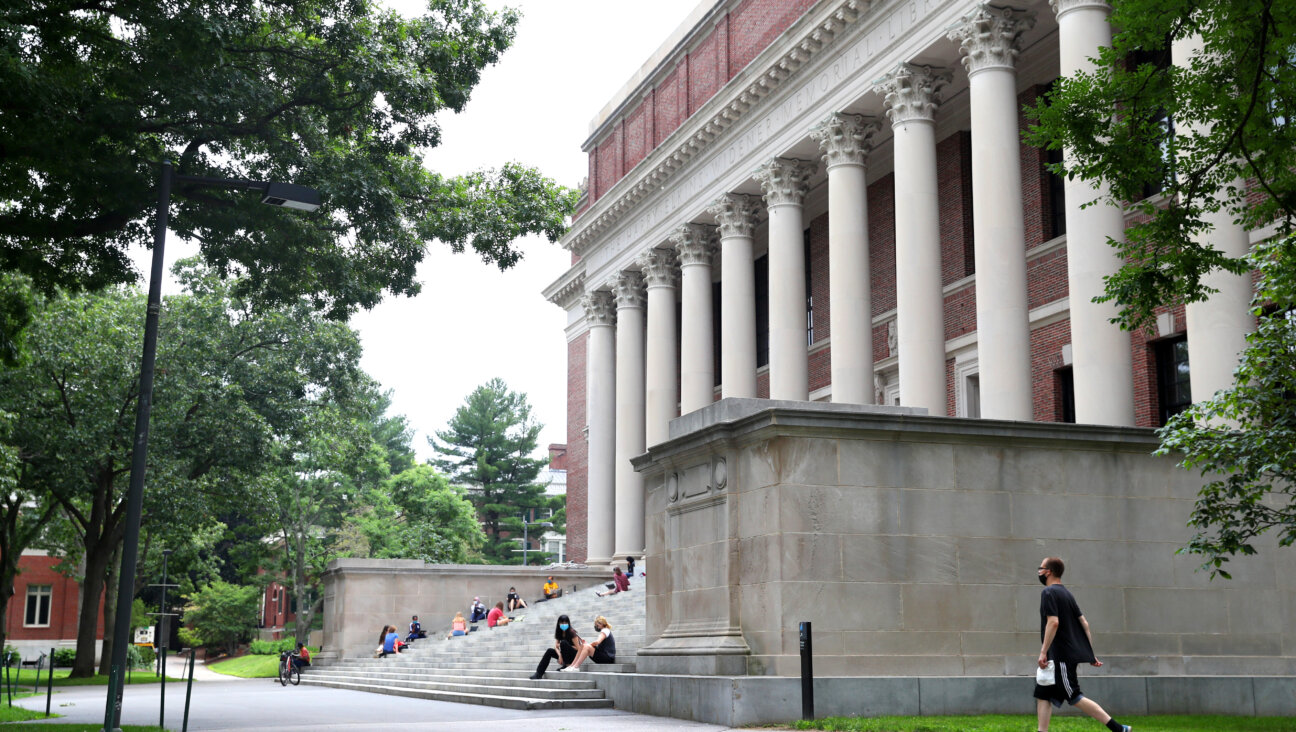Post Columnist Starts Jewish Music Project

Krauthammer: The political columnist is leading a new music project
Charles Krauthammer knows his way around the written word. But next month, the Pulitzer Prize-winning Washington Post columnist and his wife, artist Robyn Krauthammer, will unveil a project devoted to the music note. Pro Musica Hebraica, a new Washington-based organization spearheaded by the couple, will be devoted to highlighting historically neglected works of Jewish art music as well as commissioning new works.

Krauthammer: The political columnist is leading a new music project
An inaugural concert will be held April 10 at the Kennedy Center for the Performing Arts, featuring renowned violinist Itzhak Perlman as well as performers from The Juilliard School of Music.
“We’re trying to open a window on music that’s been lost or neglected,” said Krauthammer, who added that a primary focus will be on efforts of late 19th- and early 20th-century composers whose work was neglected because of the Russian Revolution and the Holocaust. “Hopefully we’ll inspire people, young people, to try to do what these musicians did 100 years ago, which was to draw from their own traditions in a modern spirit to interpret it for a general audience.”
Krauthammer has a long history of involvement with Jewish cultural and educational institutions like Washington’s Shoresh Hebrew High School, where he was a founding board member. For the new musical venture, which is being supported almost entirely by The Krauthammer Foundation, he credits his wife, Robyn.
“She was aware of a musical tradition of Jewish art music… and thought that it would be a service to bring it to the general public and to the concert-going public,” he said in a recent interview with the Forward.
The inaugural concert will focus on the works of The St. Petersburg School, a group of early 20th-century Russian Jewish composers who attempted to create a nationalist school of Jewish music similar to other nationalistic cultural efforts of the time. The group is known as the Society for Jewish Folk Music, and members such as composers as Alexander Krein and Joel Engel combined Jewish folk influences with modern classical structures and techniques to create a new form of Jewish art music.
“Jewish composers were drawing on the tradition of shtetl music, liturgical music, folk music, trying to bring sort of a modern classical sensibility to it,” Krauthammer explained.
This isn’t the only effort of its kind. This year, James Conlon, music director of the Los Angeles Opera, has been reviving the works of composers affected by the Nazi regime for his project, Recovered Voices. But the two are hardly in competition. In fact, Conlon will bring his expertise to Pro Musica Hebraica as its artistic adviser.
Pro Musica Hebraica will be focusing not just on Holocaust era material but also on music from all eras that is distinctively Jewish. In the case of the Soviet composers who will fill the first concert, the Jewish content is mixed with newer ideas.
“What’s interesting about this music is that these were composers who were trying to draw on the folk sources but create what we would call modern classical music, which is to say, they wanted to blend traditional sounds with contemporary musical language,” added James Loefler research director of Pro Hebraica Musica.
Loefler, who is a professor of European Jewish history at the University of Virginia as well as a classically trained pianist, revealed the extent of Jewish classical music while studying at The Hebrew University of Jerusalem in the late 1990s, and later when he traveled on a Fulbright Fellowship to the former Soviet Union in 2003.
While the majority of the April concert will focus on historical material, it will also feature “The Dreams & Prayers of Isaac the Blind,” a 1994 composition by the Argentine Jewish composer Osvaldo Golijov.
Following the initial concert series, Pro Musica Hebraica hopes to expand its activities through educational programs as well as the commissioning of new works.
“We hope, first of all, to educate and to bring the music to the public,” Krauthammer said, “and then hopefully we’d like to commission works in the future. We’d like to support the study and performance of this music in conservatories and schools.”
Organizers and performers also hope that Pro Musica Hebraica will contribute to the current trend of globalizing classical music.
“Some of the most interesting composers are learning to tap other folk traditions, popular traditions, rock music, and weave these into their music, developing new sounds,” Loefler said. “Frankly, that’s the built-in advantage to Jewish musical expression: Jews are so connected to so many different cultures that they tap into them and influence them and are influenced by them.”
The Forward is free to read, but it isn’t free to produce

I hope you appreciated this article. Before you go, I’d like to ask you to please support the Forward.
Now more than ever, American Jews need independent news they can trust, with reporting driven by truth, not ideology. We serve you, not any ideological agenda.
At a time when other newsrooms are closing or cutting back, the Forward has removed its paywall and invested additional resources to report on the ground from Israel and around the U.S. on the impact of the war, rising antisemitism and polarized discourse.
This is a great time to support independent Jewish journalism you rely on. Make a Passover gift today!
— Rachel Fishman Feddersen, Publisher and CEO
Most Popular
- 1

News Student protesters being deported are not ‘martyrs and heroes,’ says former antisemitism envoy
- 2

News Who is Alan Garber, the Jewish Harvard president who stood up to Trump over antisemitism?
- 3

Fast Forward Suspected arsonist intended to beat Gov. Josh Shapiro with a sledgehammer, investigators say
- 4

Politics Meet America’s potential first Jewish second family: Josh Shapiro, Lori, and their 4 kids
In Case You Missed It
-

Fast Forward Who killed Jesus? It wasn’t the Jews, writes a scholar of Roman law.
-

Fast Forward Is ‘New Absolute Bagel’ real? A sign stirs fretful optimism on the Upper West Side.
-

Opinion Yes, the attack on Gov. Shapiro was antisemitic. Here’s what the left should learn from it
-

News ‘Whose seat is now empty’: Remembering Hersh Goldberg-Polin at his family’s Passover retreat
-
Shop the Forward Store
100% of profits support our journalism
Republish This Story
Please read before republishing
We’re happy to make this story available to republish for free, unless it originated with JTA, Haaretz or another publication (as indicated on the article) and as long as you follow our guidelines.
You must comply with the following:
- Credit the Forward
- Retain our pixel
- Preserve our canonical link in Google search
- Add a noindex tag in Google search
See our full guidelines for more information, and this guide for detail about canonical URLs.
To republish, copy the HTML by clicking on the yellow button to the right; it includes our tracking pixel, all paragraph styles and hyperlinks, the author byline and credit to the Forward. It does not include images; to avoid copyright violations, you must add them manually, following our guidelines. Please email us at [email protected], subject line “republish,” with any questions or to let us know what stories you’re picking up.











